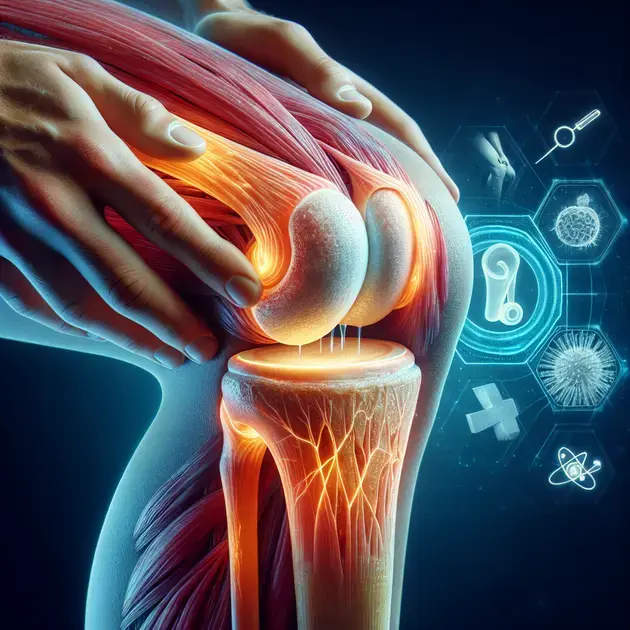Experiencing fluid on the knee can be a bothersome and uncomfortable condition for many individuals. This build-up of fluid, also known as knee effusion, can be caused by a variety of factors ranging from injury and overuse to underlying medical conditions. Understanding the causes, symptoms, and treatment options for fluid on the knee is essential in managing this condition effectively and seeking the appropriate care.
Common signs and symptoms of fluid on the knee may include swelling, stiffness, warmth, and decreased range of motion in the affected joint. It is crucial to consult with a healthcare provider for an accurate diagnosis and personalized treatment plan tailored to address the specific underlying cause of the knee effusion. From medication and physical therapy to more advanced interventions like aspiration or surgery, exploring the available treatment options is key to alleviating discomfort and promoting healing.

Causes of Knee Effusion
There are several common causes of knee effusion, also known as water on the knee. These include injuries such as ligament sprains or tears, meniscus tears, and fractures. Overuse or repetitive stress on the knee joint can also lead to fluid build-up. Additionally, medical conditions such as arthritis, gout, or infections can result in knee effusion.
To understand the specific cause of knee effusion, it’s essential to consult with a healthcare professional. They may recommend imaging tests like X-rays, MRIs, or ultrasounds to diagnose the underlying issue accurately.
Step-by-step:
- Schedule an appointment with your doctor or orthopedic specialist.
- Discuss your symptoms, medical history, and any recent injuries.
- Undergo the recommended imaging tests to determine the cause of knee effusion.
- Receive a diagnosis and treatment plan based on the findings.
Symptoms of Fluid Build-Up
The symptoms of fluid build-up in the knee, also known as knee effusion, can vary depending on the underlying cause. Common symptoms include swelling, stiffness, redness, warmth, and pain in the affected knee. You may also experience difficulty bending or straightening the knee joint fully.
If you notice any of these symptoms, it’s essential to seek medical attention promptly. Ignoring knee effusion symptoms can lead to further complications and worsening of the condition.
Step-by-step:
- Monitor your knee for any signs of swelling, pain, or limited range of motion.
- Consult with a healthcare provider if you experience persistent or severe symptoms.
- Follow the recommended treatment plan to address the fluid build-up and alleviate symptoms.
- Engage in gentle exercises and physical therapy to improve knee mobility and strength.
Treatment Options for Knee Effusion
When it comes to treating knee effusion, the approach may vary depending on the underlying cause and severity of the condition. Common treatment options include rest, ice therapy, compression, elevation (RICE), anti-inflammatory medications, and corticosteroid injections to reduce swelling and pain.
In cases where conservative treatments are not effective, more invasive options such as arthrocentesis (draining fluid from the knee) or surgical procedures like knee arthroscopy may be recommended. Physical therapy is often prescribed to improve knee strength and flexibility post-treatment.
Step-by-step:
- Follow the RICE protocol (Rest, Ice, Compression, Elevation) to reduce swelling and discomfort.
- Take prescribed anti-inflammatory medications to manage pain and inflammation.
- Consider corticosteroid injections for more severe cases of knee effusion.
- Discuss surgical options with your healthcare provider if conservative treatments are ineffective.

Causes of Knee Swelling
When it comes to the causes of knee swelling, there are several factors to consider. One common cause is injury, such as a sprained ligament or torn meniscus. These types of injuries can lead to inflammation in the knee joint, resulting in swelling and pain. Another possible cause of knee swelling is arthritis, which can cause the cartilage in the knee joint to deteriorate over time.
In addition to injuries and arthritis, other potential causes of knee swelling include infections, such as septic arthritis, as well as underlying medical conditions like gout or pseudogout. It’s important to consult with a healthcare professional to determine the specific cause of your knee swelling and develop an appropriate treatment plan.
One less common but important cause of knee swelling is a condition known as knee effusion, which refers to the buildup of excess fluid in the knee joint. This can occur as a result of injury, infection, or underlying medical conditions. Understanding the underlying cause of knee effusion is essential for effective treatment.
Overall, the causes of knee swelling can vary widely, and it’s crucial to seek medical advice to accurately diagnose the root cause and receive proper treatment.
Signs of Excess Fluid on the Knee
Recognizing the signs of excess fluid on the knee is essential for prompt diagnosis and treatment. One common sign is swelling, which can make the knee appear larger than usual and feel tender to the touch. In addition to swelling, individuals may also experience stiffness in the knee joint, making it difficult to fully straighten or bend the knee.
Another sign of excess fluid on the knee is warmth or redness in the affected area. This can indicate inflammation in the knee joint, which often accompanies the buildup of fluid. Individuals with excess fluid on the knee may also notice a feeling of instability or weakness in the joint, making it challenging to bear weight on the affected knee.
In some cases, excess fluid on the knee may lead to a sensation of “puffiness” or tightness in the joint, further exacerbating discomfort and limited mobility. It’s crucial to pay attention to these signs and symptoms and seek medical attention for proper evaluation and management.
By being aware of the signs of excess fluid on the knee, individuals can take proactive steps to address the underlying cause and prevent potential complications.
Management Strategies for Knee Effusion
Effectively managing knee effusion requires a comprehensive approach that addresses the underlying cause of the excess fluid buildup. One key management strategy is rest, which can help reduce inflammation and prevent further aggravation of the knee joint. Avoiding activities that put strain on the knee, such as running or jumping, can aid in the recovery process.
In addition to rest, applying ice to the affected knee can help alleviate swelling and provide pain relief. Ice packs should be wrapped in a cloth and applied to the knee for 15-20 minutes at a time, several times a day. This can help reduce inflammation and discomfort associated with knee effusion.
Compression bandages or sleeves may also be beneficial in managing knee effusion by providing support to the joint and reducing swelling. These supportive garments can help improve circulation in the affected area and promote healing of the knee joint.
Furthermore, elevating the leg when resting can assist in reducing swelling and promoting drainage of excess fluid from the knee. By keeping the knee elevated above heart level, individuals can help facilitate the movement of fluid out of the joint and decrease discomfort.
Overall, a combination of rest, ice, compression, and elevation can be effective in managing knee effusion and promoting recovery. It’s essential to follow these management strategies consistently and consult with a healthcare provider for personalized guidance based on the specific cause of the knee swelling.
Conclusion
In conclusion, knee swelling can be attributed to various factors, including injuries like ligament sprains or arthritis-induced cartilage degeneration. Infections and underlying medical conditions such as gout can also contribute to this swelling. It is imperative to seek medical advice to accurately diagnose the root cause of knee swelling and devise an effective treatment plan, considering the diverse range of potential triggers.
Recognizing the signs of excess fluid on the knee is crucial for timely intervention. Symptoms like swelling, stiffness, warmth, and instability indicate the presence of fluid buildup. Being proactive in addressing these signs can help prevent complications and promote a better understanding of the underlying issues causing knee swelling.
Effective management of knee effusion involves a holistic approach that includes rest, ice application, compression, and elevation. Resting and avoiding strenuous activities aid in reducing inflammation, while ice helps alleviate swelling and discomfort. Compression bandages offer joint support, and elevating the leg assists in fluid drainage, facilitating the healing process. Consistency in following these management strategies is key, alongside consulting healthcare providers for personalized guidance based on individual circumstances.